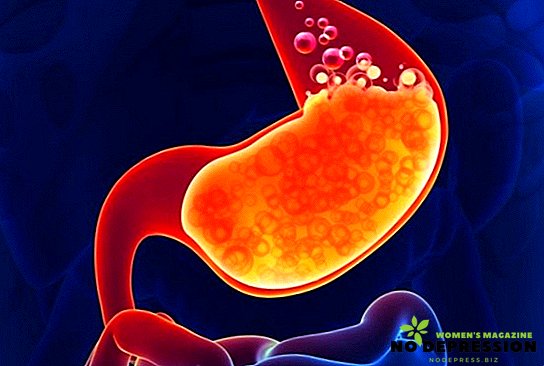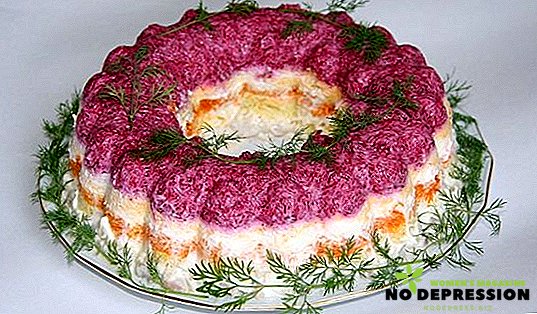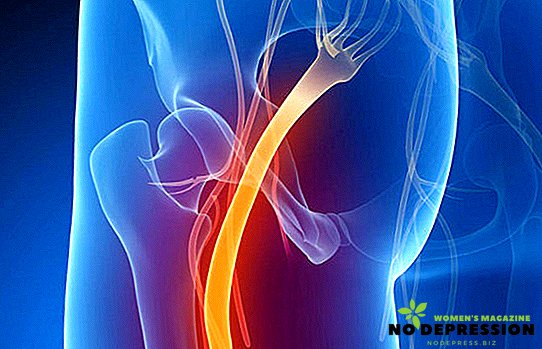Why does a child have colic in the first weeks of life, how to recognize them, prevent this problem from occurring and deal with it.
In the first weeks after the birth of the baby, more than half of the parents are faced with such a phenomenon as intestinal cramps. They bring pain and discomfort to the baby, but in most cases are not dangerous to his health. But parents should be aware of the causes and signs of this phenomenon, as well as how to eliminate it and reduce anxiety in a baby.
What are the colic in a newborn
Intestinal colic manifests itself in the form of a sharp paroxysmal abdominal pain, which occurs unexpectedly, repeated an unlimited number of times. This phenomenon is explained by the fact that the digestive system of the baby, like the whole body, gets used to the new conditions of life.
Colic appears in babies as early as a couple of weeks after birth and usually lasts 2-3 months. However, they are rarely signs of serious disorders of the development of the digestive system. This phenomenon is very common in healthy children who do not have developmental problems.
Causes of intestinal colic in an infant
The main reason for the appearance of colic is that the whole body of a newborn baby adapts to new conditions. The same happens with the digestive system. This is especially evident in premature babies. However, there are some factors that increase the likelihood of this problem in a child.
Nutrition nursing mom. If the baby is fully or predominantly fed on breast milk, the mother should observe the communication of the food consumed and the appearance of colic in the baby.
Some foods can cause flatulence. These include: cabbage, tomatoes, legumes, dairy products, nuts, pastries, carbonated drinks, spicy seasonings. These products should be removed from the diet or significantly reduce their number. At the same time, maternal nutrition should be diverse, rich in vitamins.
Incorrectly selected mixture. It is necessary to choose a mixture for feeding individually, taking into account the age category. Some mixtures can cause discomfort or an allergic reaction in a particular baby. You must also follow the rules of preparation of the mixture. Too liquid or saturated mixture can cause discomfort in an infant. An early transition to artificial feeding can also cause disturbances in the digestive process.
Air ingress at the time of feeding. Many babies with milk can capture some air. This happens when you improperly attach to the breast, choosing the wrong nipple for the bottle. Therefore, immediately after feeding the child, it is necessary to hold it upright so that the air can escape. To capture the air, the baby can and during a strong crying.
Feeding mode
Too short sucking of the breast by the infant can lead to colic. This is because the front milk is full of carbohydrates, while the back contains more nutrients. If at each feeding the baby receives only the front milk, this can lead to the fermentation process and the formation of excessive amounts of gases.
Overfeeding. Often, young mothers often put the baby to the breast, because in this way he calms down faster. Therefore, the child eats too often and abundantly. Food does not have time to digest and colic appears.
Symptoms
Often, young parents find it difficult to determine the cause of anxiety of the baby, one of which may be intestinal colic. Among the most obvious symptoms of this phenomenon are:

- Restless behavior of the child, especially in the evening and after feeding.
- Long strong crying baby. Most often this begins half an hour after feeding and may last for several hours.
- The child presses the legs to the stomach. This indicates a sharp attack of pain.
- Abdominal distention and gas discharge.
What diseases can occur
Although in most cases, colic is quite normal, in some cases it can be one of the symptoms of more serious disorders of the gastrointestinal tract. These diseases include:
- cow's milk protein allergy;
- primary lactase deficiency;
- dysbacteriosis;
- congenital diseases of the digestive system;
- intestinal obstruction.
Only a doctor can determine the presence of such diseases. Parents should be alerted if symptoms of normal colic are accompanied by the following phenomena:
- age of the child over 4 months;
- the duration of the attack is more than 4-5 hours;
- the release of air or gases does not improve the condition of the child;
- there are violations of the chair (diarrhea, green feces, blood streaks);
- the child loses weight;
- the general condition of the child is deteriorating.
In the event of such symptoms, you should immediately consult with a specialist and pass the necessary examinations.
How to prevent or relieve colic

To reduce the likelihood of such an illness, you must adhere to the following rules:
- Before feeding the baby must be laid on a hard surface on the tummy for 10-15 minutes.
- After feeding, it is recommended to keep the baby in an upright position until the discharge of air.
- Nursing mom needs to adhere to dietary restrictions.
- A tummy massage will help prevent colic. Simply stroke the child's belly in a clockwise direction for a few minutes.
If this problem could not be prevented, there are ways to alleviate the child’s condition. This requires:
- Attach a warm object to the baby’s tummy. This can be iron-ironed diaper or a hot water bottle. Also, a very good way would be to lay a baby on the mother’s chest. This will help the child calm down much faster.
- During the attack, you can massage the abdomen in a circular motion. It helps to relieve pain and gas.
- Bent baby legs can be pressed to the tummy, making a circular motion. Such gymnastics will help the rapid discharge of gases.
- Tactile contact will help the child calm down faster and easier to suffer discomfort.
- The use of drugs.
What drugs can be used
If you could not prevent colic attacks by other available methods, you can resort to the use of medicines.
Available infant care products include:
- Herbal preparations. These are dill water, as well as preparations based on fennel extract, dill and anise. Such drugs are Plantex, Bebinos, Bebikalm.
- Preparations based on simethicone. This substance helps to relieve pain and reduce the amount of gases. Preparations based on simethicone are: Espumizan, Bobotik, Simethicone, Subsimplex.
- Probiotics. The action of such substances is justified only if colic is caused by dysbiosis. Therefore, they should be used only after the recommendation of a doctor. Probiotic drugs are Linex, Atsipol, Bifiform Baby.

The choice of anti-colic drug should be individual. Parents need to pay attention to the condition of the child after taking the drug. In the case of its deterioration or in the absence of any improvements, it is necessary to replace the selected drug.
Conclusion
In order for parents and the baby to cope with the adaptation period of the digestive system without complications, it is necessary to remember the following points:
- colic occurs in 2/3 of babies;
- breastfeeding mother needs to control the diet;
- feeding the child must be correct, timely and moderate;
- prolonged crying after feeding may signal swelling and gas formation;
- frequent changes in the position of the child, being in an upright position and on the abdomen will prevent colic;
- for long-term attacks of colic and stool changes, a specialist should be visited;
- the choice of medications for the relief of abdominal pain should be individual.
This video will help to quickly and effectively cope with infant colic.
During this period, parents need to be prepared for the restless behavior of the baby, crying often and for a long time and try to alleviate his condition by all means.












